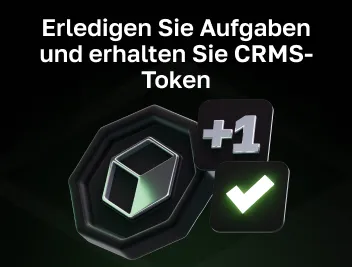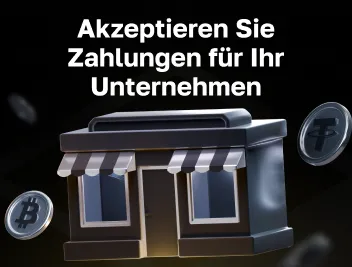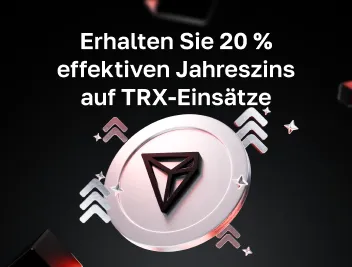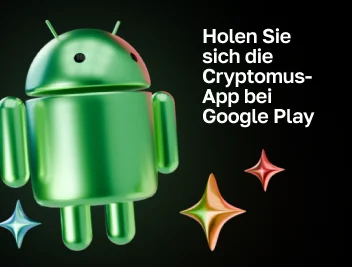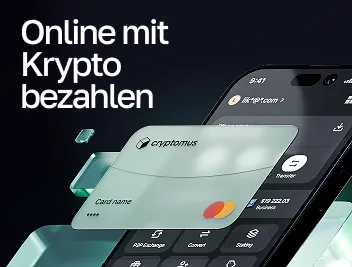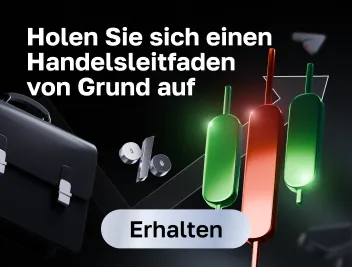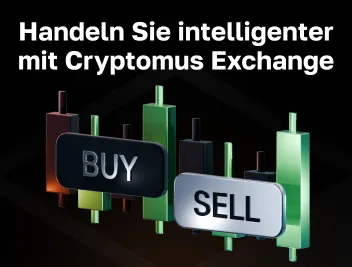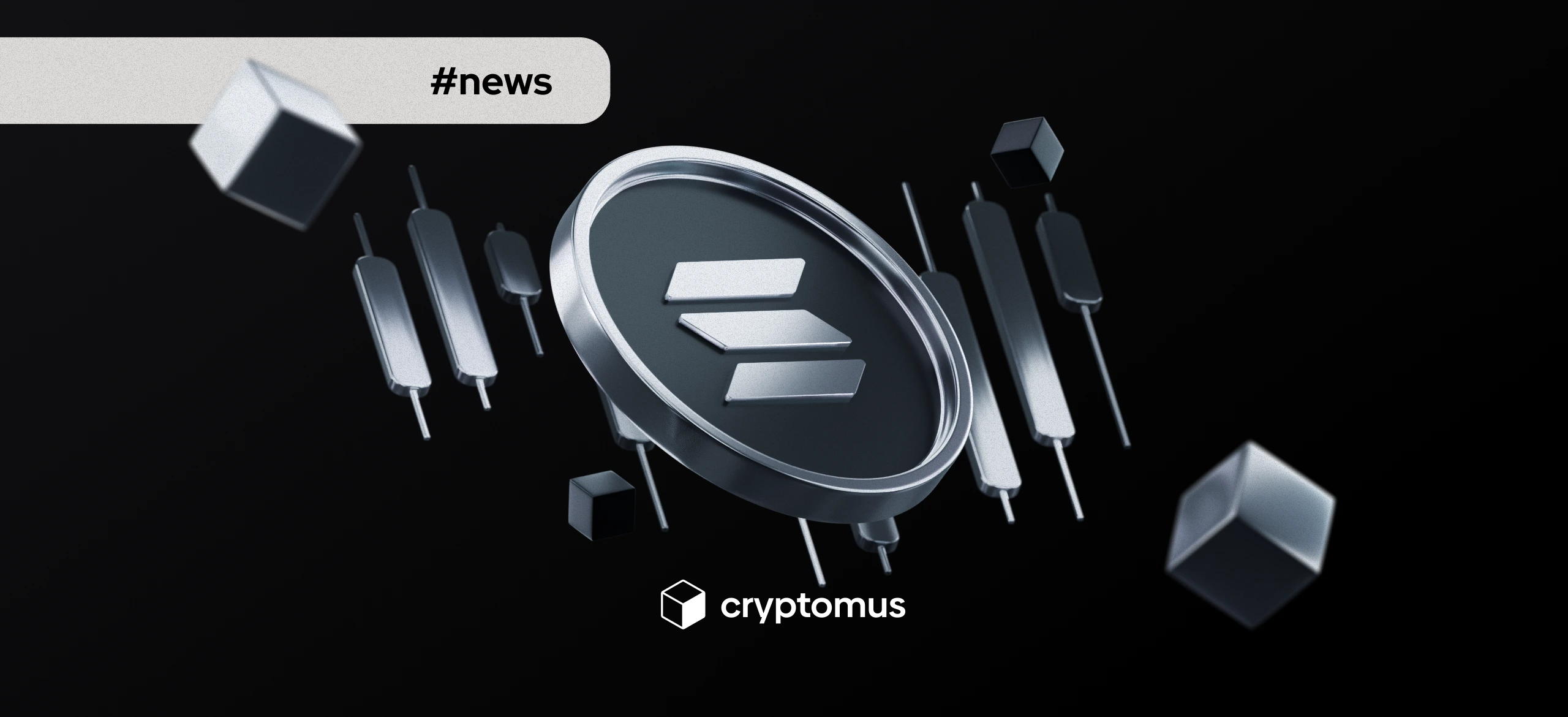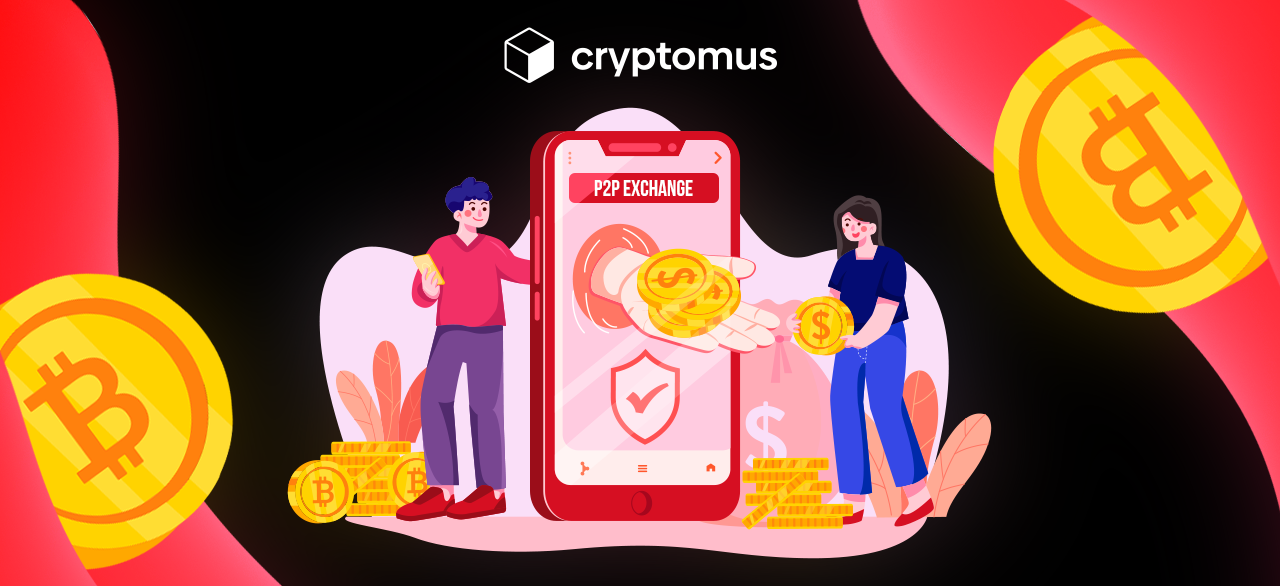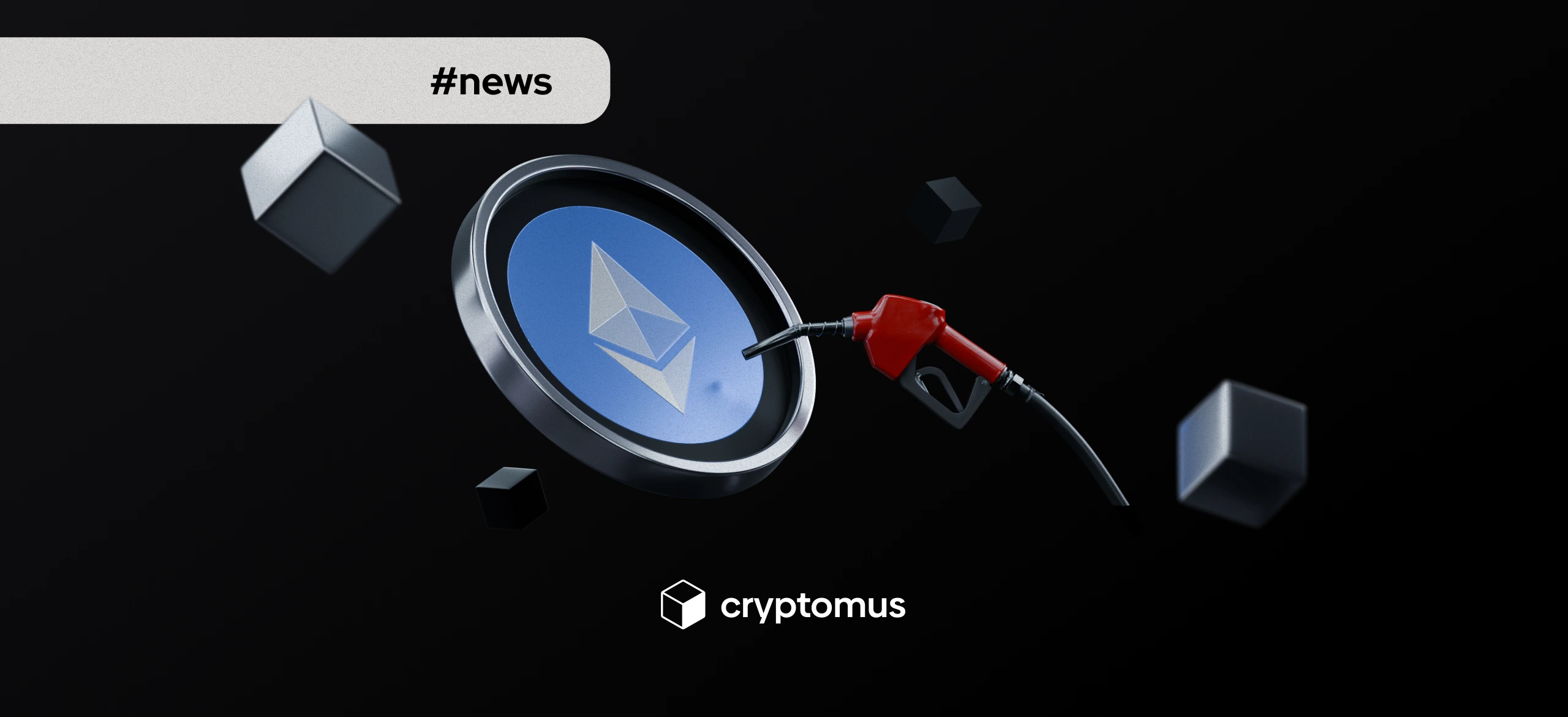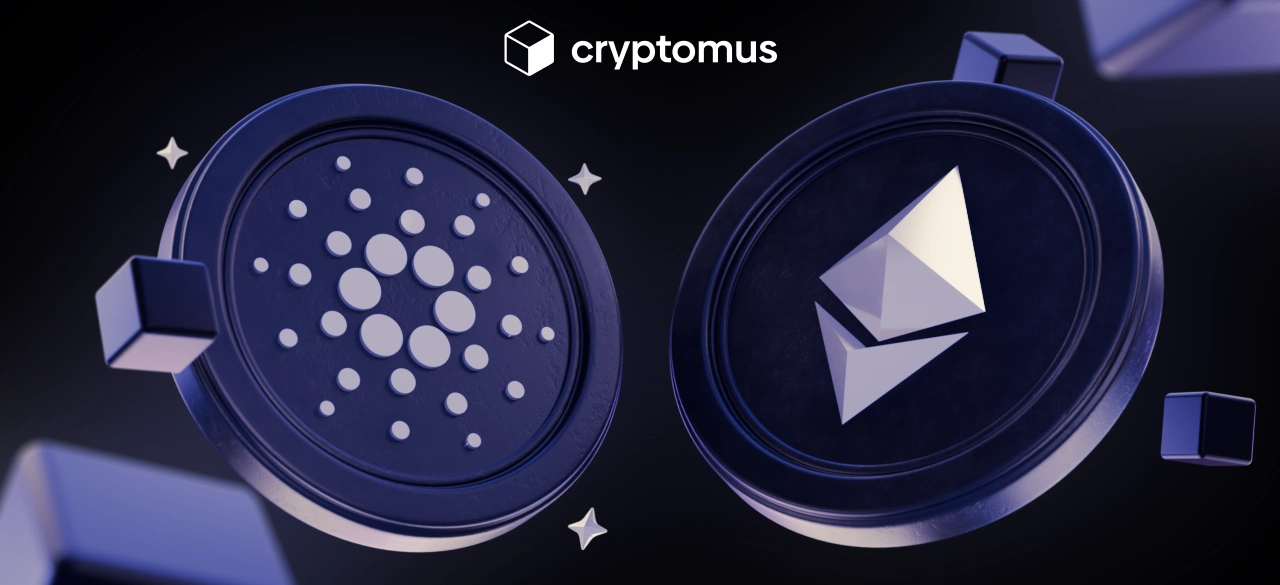
Ethereum (ETH) vs. Cardano (ADA): Ein vollständiger Vergleich
Inhaltsverzeichnis
Erfahrene Investoren und gewöhnliche Nutzer richten immer mehr Aufmerksamkeit auf zwei bekannte Blockchain-Netzwerke: Ethereum und Cardano. Experten vergleichen sie gerne miteinander, da deren Gründer fast dieselbe Person ist. Darüber hinaus sind die nativen Coins dieser Netzwerke unter Nutzern weit verbreitet und gehören zu den beliebtesten.
Was sind die Ähnlichkeiten und Unterschiede zwischen diesen herausragenden Akteuren? Dieser Artikel bietet einen umfassenden Vergleich.
Was ist Ethereum (ETH)?
Da die Blockchain-Technologie die Art und Weise, wie Transaktionen verarbeitet werden, verbessert, ist Ethereum eine der beliebtesten Kryptowährungen geworden. ETH wurde 2015 von Vitalik Buterin, einem kanadisch-russischen Kryptowährungsforscher, geschaffen. Er argumentierte, dass das Bitcoin-Netzwerk eine neue Skriptsprache für ein freieres Internet benötigte. Im Gegensatz zu BTC war Ethereum nicht nur eine digitale Währung; es fungierte vielmehr als Supercomputer oder Blockchain-Plattform. Die Währung von Ethereum heißt Ether (ETH).
Der Hauptzweck, für den Ethereum geschaffen wurde, war es, eine vollwertige, dezentrale Plattform zu sein, auf der Anwendungen gebaut und Transaktionen ohne Zwischenhändler durchgeführt werden können. Anfangs lief Ethereum mit einem Proof-of-Work-Algorithmus, bei dem Miner die Transaktionen überprüften und das Netzwerk sicherten. Etwas später wurde die Plattform auf Ethereum 2.0 aktualisiert, woraufhin die Blockchain auf den PoS (Proof-of-Stake)-Prozess umschaltete. Auf diese Weise hat das Produkt eine verbesserte Skalierbarkeit und reduzierte den Energieverbrauch, was es umweltfreundlicher macht.
Diese Art von Funktionalität für Smart Contracts wurde erstmals in Ether eingeführt. Es hat die Fähigkeit, sehr komplexe Algorithmen und Anwendungen ohne die Notwendigkeit eines Dritten auszuführen. Die eigene Kryptowährung Ether dient als eine Art Treibstoff für das Ethereum-Netzwerk. Sie wird als Zahlungsmethode für die Verarbeitungsleistung verwendet.
Was ist Cardano (ADA)?
Cardano ist ein Blockchain-Netzwerk der dritten Generation, das 2017 von Charles Hoskinson, Mitbegründer von Ethereum, gegründet wurde. Dieses neuere Netzwerk zielte darauf ab, Lösungen zu präsentieren, die die Einschränkungen der ersten und zweiten Generation von Kryptowährungen, nämlich Bitcoin und Ethereum, umgehen konnten. Cardano ist sicherer, skalierbarer und leichter zu übernehmen.
Die native Münze von Cardano heißt ADA. Die mehrstufige Segmentierung dieser Kryptowährung wird Epochs genannt. Sie trennen den Prozess der Transaktionsaufzeichnung von der Ausführung der Smart Contracts. Cardano unterstützt die Interoperabilität mit anderen Blockchains und Finanzsystemen.
Im Kern von ADA liegt ein origineller Mechanismus namens Ouroboros, der um den Proof-of-Stake-Algorithmus aufgebaut ist, um die Sicherheit des Netzwerks und eine hohe Energieeffizienz zu gewährleisten. Cardano basiert auf einem forschungsgetriebenen Ansatz, daher stellen Netzwerkaktualisierungen Änderungen dar, die Peer-Reviews durchlaufen haben.
Cardano ist dezentralisiert und ermöglicht es ADA-Besitzern, direkt an Protokolländerungen und Finanzierungsentscheidungen teilzunehmen. Dies wird die Beteiligung und Kontrolle der Community erhöhen und somit ein demokratisches und inklusives Funktionieren sicherstellen.
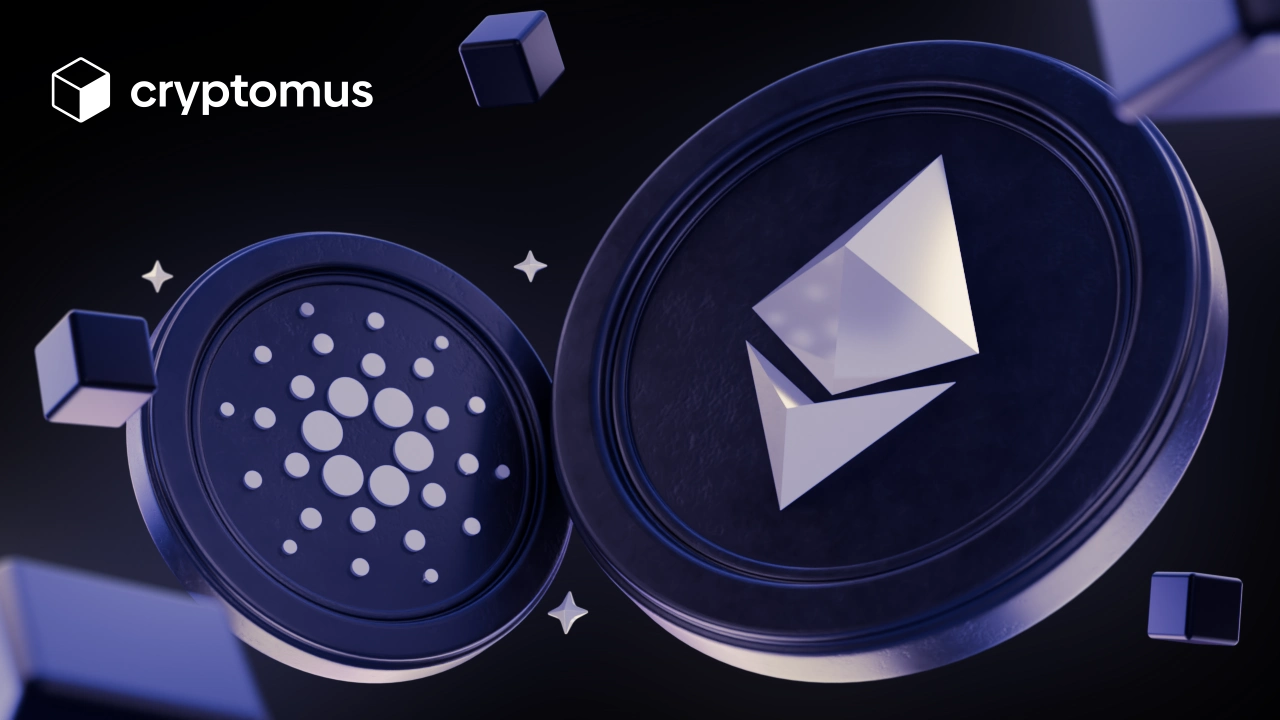
Ethereum vs. Cardano: Wichtige Unterschiede
Lassen Sie uns also die Hauptunterschiede zwischen diesen bekannten Netzwerken aufschlüsseln.
Transaktionsgeschwindigkeit
-
Dies ist ein wichtiger Faktor sowohl für Enthusiasten als auch für Experteninvestoren, da er sowohl die Geschwindigkeit der Transaktionen als auch die Häufigkeit, mit der sie auftreten, beeinflusst. Ethereum kann nur 20-30 Transaktionen pro Sekunde verarbeiten. Nach dem Übergang zu Ethereum 2.0 ist geplant, bis zu 100.000 TPS durch verbesserte Skalierbarkeit zu erreichen. Theoretisch ist diese Option durch den Wechsel vom PoW-Algorithmus zum PoS-Algorithmus möglich.
-
Cardano ist ursprünglich eine Art Upgrade von Ethereum, mit dem zusätzlichen Vorteil, etwa 250 TPS verarbeiten zu können. Dies ist durch Ouroboros — seinen Konsensmechanismus — möglich. Er ist so konzipiert, dass er eine höhere Durchsatzrate hat, um die Leistung zu verbessern.
Gebühren
- Gebühren sind ein weiterer bedeutender Unterschied zwischen Ethereum und Cardano, der sowohl Entwickler als auch Benutzer betrifft. Ethereum-Gasgebühren hängen von der Komplexität des Deals und der aktuellen Netzlast ab. Das ist ein Grund, warum sie teuer sind, da das Netzwerk oft stark ausgelastet ist.
Das war in der Tat ein echtes Problem, und das ist es, was verschiedene Lösungen auf den Markt drängt, wie Ethereum 2.0 und Layer-2-Technologien, zum Beispiel Optimistic Rollups, zk-Rollups.
- Cardano bietet niedrigere und vorhersehbare Transaktionsgebühren. Das Ouroboros-Protokoll optimiert die Energieeffizienz und Kosteneffektivität, was Benutzer anzieht, die nach kostengünstigen Lösungen suchen.
Ein großer Faktor beim Kauf von Kryptowährungen ist die Börse, die Sie zum Handel nutzen. Die Cryptomus P2P-Börse bietet niedrige Provisionen von 0,1 % für ihre Nutzer. Sie können mehr über den P2P-Handelsprozess hier erfahren.
Funktionalität der Smart Contracts
-
Ethereum verfügt über eine sehr robuste Infrastruktur für Smart Contracts, die weit verbreitet ist und zahlreiche dApps und DeFi-Projekte umfasst. Das bedeutet, dass ein Investor vertrauenswürdige Smart Contracts in einer flexiblen Krypto-Umgebung bereitgestellt durch die ETH Virtual Machine erstellen kann.
-
Die Smart Contract-Funktionen von Cardano sind im Vergleich zu denen von Ethereum neuer. Die Plattform Plutus konzentriert sich auf Sicherheit und formale Verifikation, was Entwicklern ermöglicht, sichereren Code zu schreiben. Auch wenn sie noch nicht weit verbreitet ist, bietet sie erhebliches Wachstumspotential für die Zukunft.
Umweltimpact
-
Das Upgrade von Ethereum auf Proof of Stake reduziert den Energieverbrauch erheblich im Vergleich zum vorherigen Proof of Work-Protokoll. Dies ist eine Antwort auf die steigende Nachfrage nach „grünen“ Blockchain-Lösungen.
-
Cardano wurde von Anfang an mit Nachhaltigkeit im Hinterkopf entwickelt. Sein PoS-Algorithmus, Ouroboros, ist äußerst energieeffizient, was Cardano zu einer umweltfreundlichen Wahl macht.
Ethereum vs. Cardano: Welches ist besser zu kaufen?
Trotz der Unterschiede haben die ETH- und ADA-Blockchain-Netzwerke viel gemeinsam. Zum Beispiel bieten beide Kryptowährungen einen ähnlichen Staking-Prozess und verbrauchen weniger Energie als Bitcoin und andere Währungen, die auf dem Proof-of-Work-Algorithmus basieren. Beide Kryptowährungen nutzen Smart Contracts und unterstützen die Erstellung dezentraler Anwendungen (dApps).
Darüber hinaus können Sie beide Vermögenswerte auf der Krypto-Börse handeln oder in Wallets wie jede andere Kryptowährung speichern.
Sie können Cryptomus als Ihren Krypto-Wallet-Anbieter wählen. Das Cryptomus-Wallet ist verwahrend, sodass Sie sich keine Sorgen machen müssen, wenn Sie Ihren privaten Schlüssel verlieren oder auf andere Probleme stoßen. Sie können sich jederzeit an das Support-Team wenden. Dank seiner benutzerfreundlichen Oberfläche können Sie alle Funktionen vollständig nutzen.
Nun, da wir alle Ähnlichkeiten und Unterschiede der Netzwerke durchgegangen sind, lassen Sie uns zusammenfassen und versuchen, eine Schlussfolgerung zu ziehen: Welches ist besser zu kaufen?
-
Ethereum ist die zweitgrößte Kryptowährung nach Marktkapitalisierung und ein Führer im Blockchain-Bereich. Es verfügt über ein relativ fortgeschrittenes Ökosystem mit vielen Kooperationen und Partnerschaften. Mit der fortgesetzten Übergang zu Ethereum 2.0 sind auch signifikante Verbesserungen zu erwarten. Investoren sollten jedoch auf die Volatilität und Wettbewerbsfähigkeit des Handels an den Börsen vorbereitet sein.
-
Cardano bietet aufgrund seiner einzigartigen Methode und seines Fokus auf Nachhaltigkeit, Skalierbarkeit und Interoperabilität eine spannende Investitionsmöglichkeit. Als neue, profitable Krypto kann sie erhebliches Wachstumspotenzial bieten. Gleichzeitig birgt sie jedoch Risiken im Zusammenhang mit den begrenzten Entwicklungsmöglichkeiten und der Konkurrenz mit anderen Kryptowährungen.
Wie immer hängt die Entscheidung, welches zwischen Ethereum und Cardano besser zu kaufen ist, von verschiedenen Faktoren ab – beispielsweise von individuellen Investitionszielen, dem Zustand des Marktes oder Ihren persönlichen oder geschäftlichen Bedürfnissen.
Ethereum vs. Cardano: Ein Direkter Vergleich
| Funktion | Ethereum | Cardano | |
|---|---|---|---|
| Erfindungsjahr | Ethereum2015 | Cardano2017 | |
| Konsensmechanismus | EthereumProof of Stake (PoS) | CardanoOuroboros, Proof of Stake (PoS) | |
| Transaktionsgeschwindigkeit | Ethereum~15 TPS (aktuell) | Cardano~250 TPS | |
| Gebühren | EthereumHöher, variable Gasgebühren | CardanoNiedriger, vorhersehbare Gebühren | |
| Smart Contracts | EthereumAusgereift, weit verbreitet | CardanoNeuer, auf Sicherheit fokussiert | |
| Entwicklung | EthereumSchnell, anpassungsfähig | CardanoMethodisch, forschungsbasiert | |
| Ökosystem | EthereumGroß, vielfältig | CardanoWachsend, auf reale Anwendungen fokussiert | |
| Umweltauswirkungen | EthereumVerbesserte Effizienz mit PoS | CardanoVon Anfang an energieeffizient |
Letztendlich spielt es wahrscheinlich keine große Rolle, welcher von beiden "besser" ist. Jeder von ihnen hat seine eigenen Vor- und Nachteile, und die endgültige Wahl hängt weiterhin von Ihren Präferenzen und Bedürfnissen ab. Sie können jede Krypto immer auf der Cryptomus P2P Plattform kaufen.
Vielen Dank für Ihre Aufmerksamkeit! Was halten Sie von den Unterschieden zwischen ADA und ETH? Teilen Sie Ihre Meinung in den Kommentaren.
Simplify Your Crypto Journey
Möchten Sie Kryptowährungen speichern, senden, akzeptieren, einsetzen oder handeln? Mit Cryptomus ist alles möglich – melden Sie sich an und verwalten Sie Ihre Kryptowährungsgelder mit unseren praktischen Tools.
Erste Schritte
